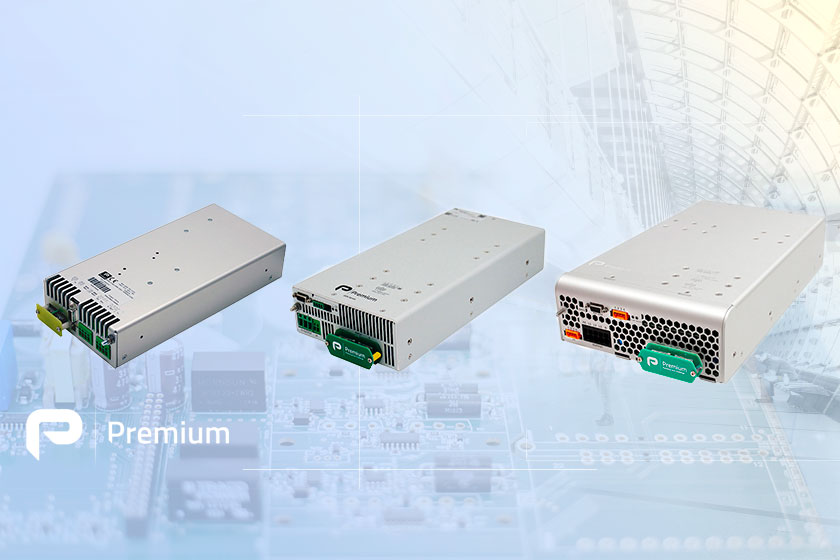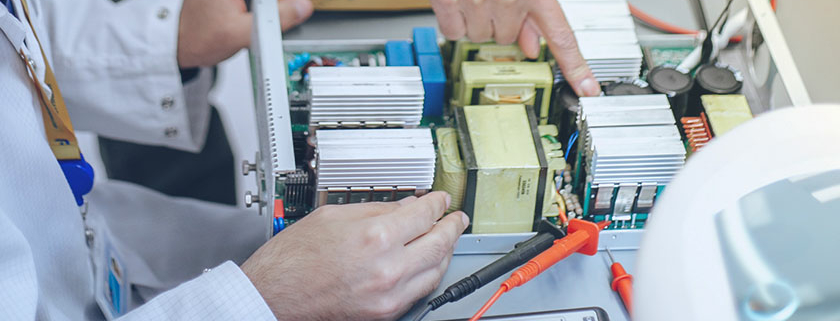Unlocking the Power of DC/AC Inverters: Everything You Need to Know
In the realm of power electronics, DC/AC inverters assume a pivotal role. These devices facilitate the conversion of direct current (DC) into alternating current (AC), a fundamental process for energizing a diverse array of systems and applications. DC/AC inverters are an integral component of power conversion, and comprehending their functionality is of paramount significance. Within this article, we will delve comprehensively into the realm of DC/AC inverters, elucidating their underlying principles and their widespread applications.
Definition and Operation
A DC/AC inverter represents an electronic apparatus that transfigures a direct current source into an alternating current signal. This transformation is achieved through the utilization of electronic switches, such as transistors or thyristors, which generate an alternating waveform at the output. The process of DC/AC conversion is rooted in pulse width modulation (PWM), where the duration of the output signal pulses is meticulously regulated to replicate a sinusoidal waveform. A comprehensive grasp of the operational intricacies of DC/AC inverters is essential to fathom their pivotal role within power electronics.
Types of DC/AC Inverters
Several categories of DC/AC inverters exist, each meticulously crafted to meet distinct application prerequisites. The most prevalent types encompass:
-
Full-Bridge Inverters
- Employing four controlled switches, these inverters generate a sinusoidal output signal. Renowned for their ability to produce high-fidelity waveforms with minimal harmonic distortion, they are ideally suited for applications demanding pristine power quality, such as uninterruptible power supplies (UPS) and sensitive medical equipment.
-
Half-Bridge Inverters
- These inverters rely solely on two switches to produce a pulsating output signal. While their inherent simplicity renders them less efficient and more susceptible to harmonic distortion, they serve capably in low-power and cost-effective applications, commonly finding use in household appliances and lighting systems.
-
Multilevel Inverters
- Multilevel inverters employ multiple voltage levels to generate an output signal with reduced harmonic distortion. These inverters prove particularly advantageous in high-power scenarios, encompassing railway inverters systems and motor drives. Their capacity to minimize harmonic distortion renders them an exemplary choice for applications sensitive to power quality.
Applications of DC/AC Inverters
DC/AC inverters find application across an extensive spectrum of power electronics. Some of the most prevalent deployments encompass:
-
Uninterruptible Power Systems (UPS):
- DC/AC inverters assume a pivotal role in UPS, where they transmute the energy stored in batteries into alternating current, facilitating the powering of critical equipment during instances of power interruption. This guarantees an uninterrupted power supply, precluding disruptions in vital systems such as data centers, hospitals, and communication networks.
-
Renewable Energy:
- Solar and wind power systems generate direct current, necessitating conversion into alternating current for integration into the electrical grid or localized applications. DC/AC inverters play an indispensable role in this process, enabling the seamless assimilation of renewable energy into the electrical grid while ensuring the efficient transmission of generated power.
-
Motor Drives:
- DC/AC inverters are instrumental in electric motor drive systems, enabling precise control over motor speed and torque. This renders them eminently suitable for industrial and transportation applications, including machine tools, electric vehicles, and railway inverters systems.

Our line of Premium PSU’s DC/AC Inverters serves as a prime exemplar of versatility and availability, prioritizing a compact design while upholding safety and reliability. Our standard single and three-phase inverters offer an extensive range of input and output options, spanning from 260VA to 24kVA. These inverters exemplify adaptability and can accommodate diverse applications and energy demands. Moreover, our commitment to excellence has led us to achieve custom DC/AC inverters with a maximum capacity of 40kVA, thus enabling us to meet even the most exacting power requirements.
Furthermore, we take pride in the exceptional efficiency of our custom solutions, which can achieve an energy efficiency rating up to 94%. This underscores our inverters’ exceptional capacity for energy conversion, minimizing losses while maximizing performance. In summation, our standard and custom inverters offer an ideal fusion of power, versatility, and efficiency, aligning seamlessly with the energy requirements of your project needs.
It is noteworthy that all our inverters are fully compliant with the EN50155 regulation for railway inverters applications, among others. This commitment underscores our dedication to adapt our inverters to requisite regulations, ensuring their safe and fitting deployment across a myriad of industries. At Premium PSU, we remain steadfast in our mission to provide safe and reliable power solutions that transcend the demands of various fields.
In conclusion, DC/AC inverters represent critical components within the realm of power electronics, facilitating the efficient conversion of direct current into alternating current. Spanning uninterruptible power systems, renewable energy, and motor drives, DC/AC inverters play a pivotal role across an array of domains. As a continually evolving technology, their integral role within power conversion is poised to endure. A comprehensive understanding of their operation and applications is imperative to harness their full potential in the realm of power electronics.





